Finding Fifth Avenue's Lost Traffic Light Mercury Statues
What happened to the 104 bronze figures that once lined NYC's famous thoroughfare?!

Formerly used as a university basketball court, Brooklyn Paramount has returned to its roots as a music venue after a multi-year restoration!

On Wednesday night, Bob Marley’s sons, Damian and Stephen Marley, became the first musicians to take the stage at Brooklyn Paramount in over sixty years. Originally opened in the 1920s as a movie and vaudeville house, the Brooklyn Paramount Theatre became a legendary music venue that hosted the likes of Buddy Holly, Ella Fitzgerald, Frank Sinatra, Ray Charles, and more. Since the 1960s, the space has served as a basketball court for Long Island University. After a five-year, multi-million dollar restoration, the theatre has been transformed into a 2,700-capacity music venue, and many of its opulent architectural features have been revived. The renovated space offers exciting new amenities for modern performing artists and audience members while paying homage to icons of the past.
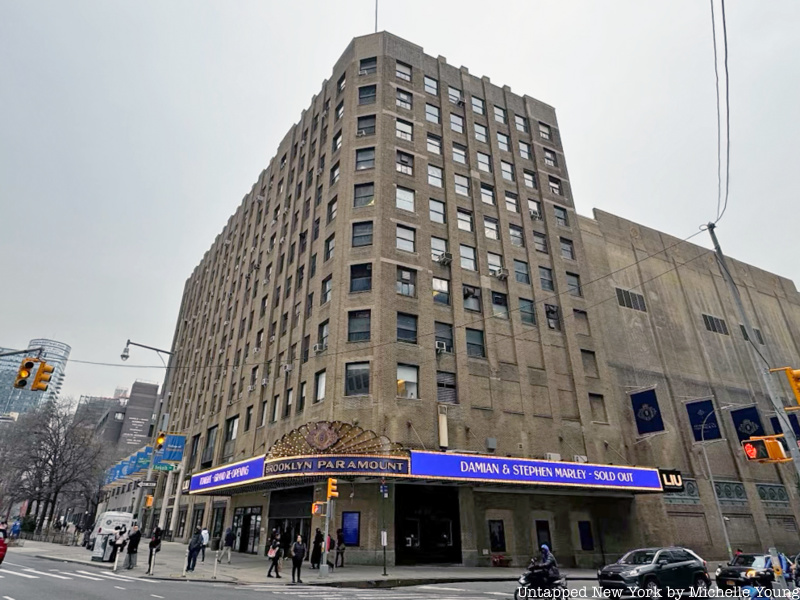
Brooklyn Paramount Theatre opened on November 24, 1928, inside an 11-story office tower built by Paramount Pictures on the northeast corner of the Flatbush Avenue Extension and DeKalb Avenue. It was touted as “America’s First Theatre Built for Sound.” With over 4,200 seats, the Paramount was the largest theatre in the area compared to places like the Fox Theatre, Metropolitan Theatre, and Albee Theatre. Designed by the Chicago architecture firm Rapp & Rapp, the decadent interior of the theatre was filled with Baroque ornamentation. On opening night, 30,000 people showed up to watch Manhattan Cocktail, a film by Hollywood’s only female director at the time, Dorothy Arzner.
Audience members enter the renovated space under a brightly lit marquee, reminiscent of the building’s original signage. The exterior signage design, in addition to the interior redesign, was led by Arcadis. Once inside, you are greeted by a gilded and marble-clad lobby with soaring arched ceilings and elegant chandeliers. On the ceiling, projectors create a mesmerizing display of patterns and ever-changing visuals.
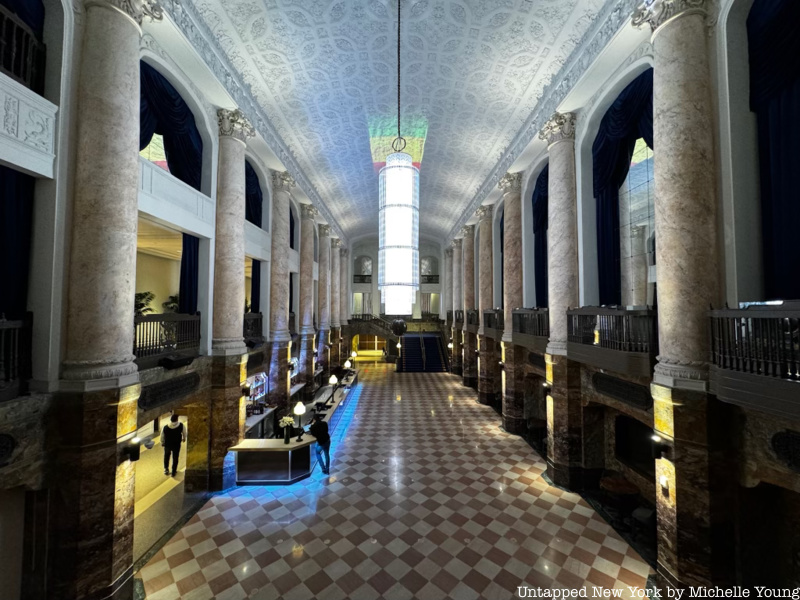
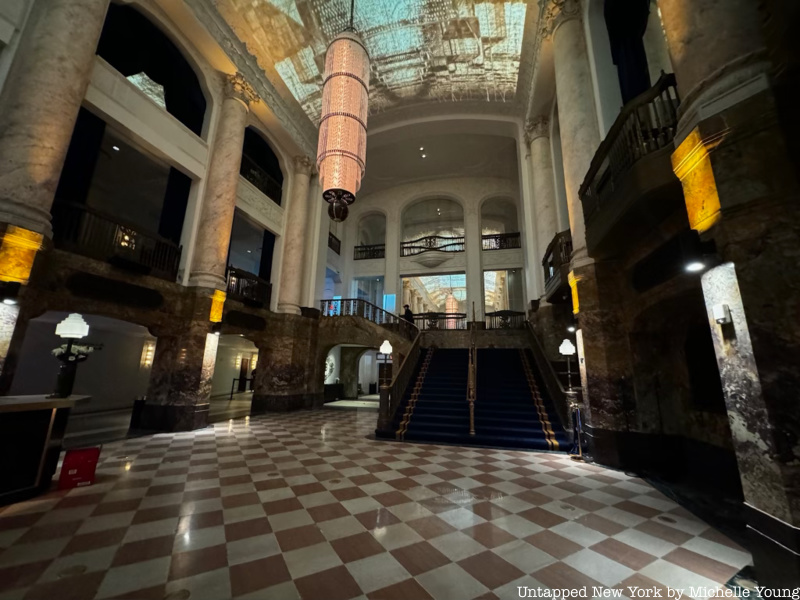
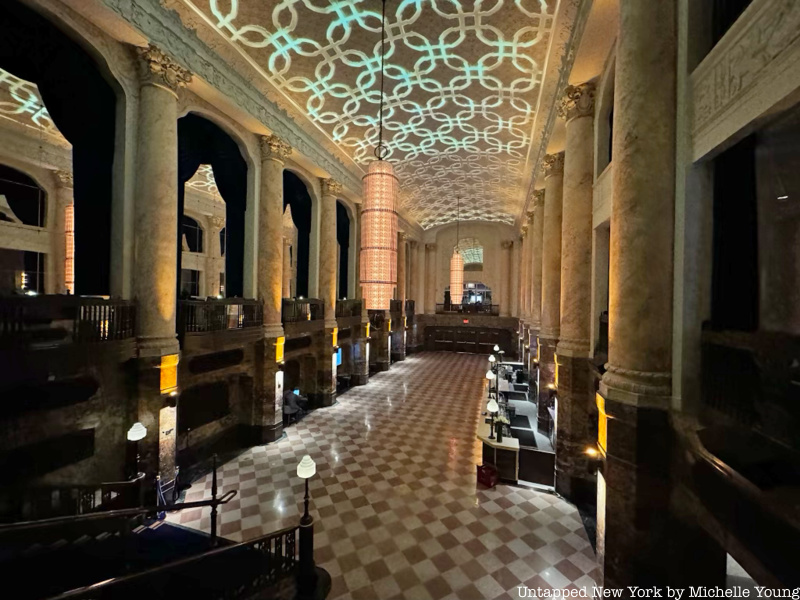
Silent pictures, “talkies,” vaudeville shows, and live jazz could be seen at the theater through the 1930s. Duke Ellington played there with his orchestra in 1931 and jazz greats such as Charlie Parker, Ella Fitzgerald, and Miles Davis all performed on the Paramount stage. The theatre struggled through the Depression but found success in the 1950s with Alan Freed’s famous rock ‘n’ roll show.
Chuck Berry, Fats Domino, Little Richard, Jerry Lee Lewis, and Jackie Wilson were all part of Freed’s radical rock ‘n’ roll revues where they played to a desegrated audience. It was at one of Freed’s shows where a young Carole King saw a racially integrated crowd of black and white teenagers for the first time and where she became “aware of a new kind of music” that she writes, “spoke to me and for me” in her memoir, A Natural Woman.
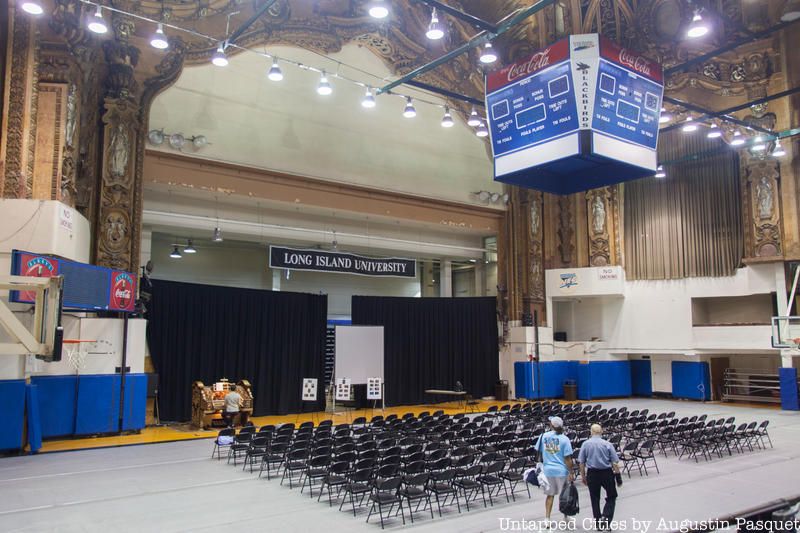
Long Island University purchased the building in 1950 and used the upper floors for classrooms and administrative offices. By the 1960s, the university also took over the auditorium. The theatre closed in 1962 and soon became LIU’s Schwartz Athletic Center. Instead of jazz piano and fast-strummed guitar riffs, the auditorium was filled with the sounds of basketball swishes and sneakers squeaking on the court floor for the next six decades.
The padded walls and scoreboards have now been removed to reveal the splendor of the theatre’s original architecture. A sloped floor was added in the auditorium so that general admission ticketholders could all have a good view of the stage. A row of bars lines the back of the space.
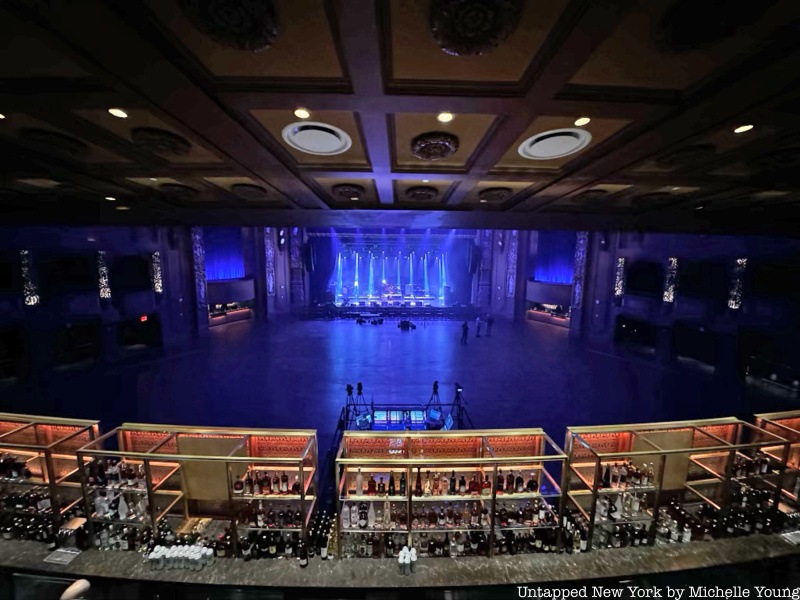
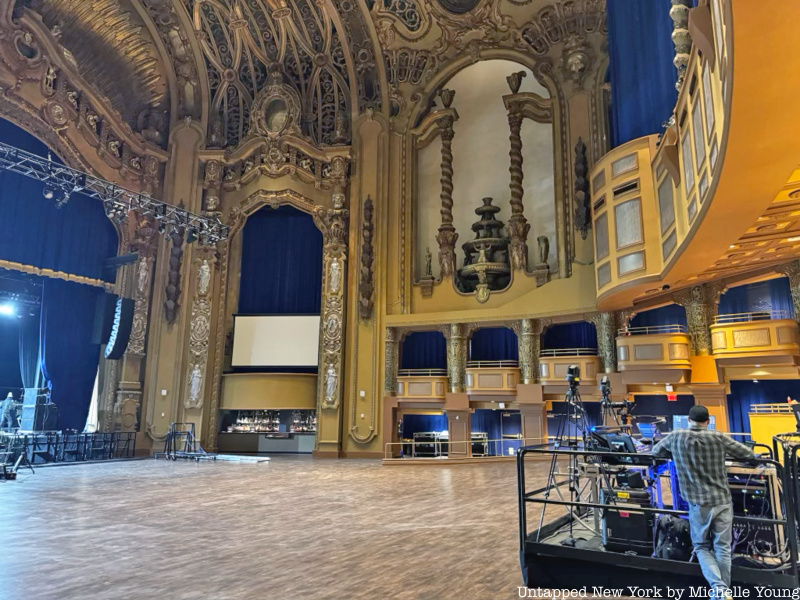
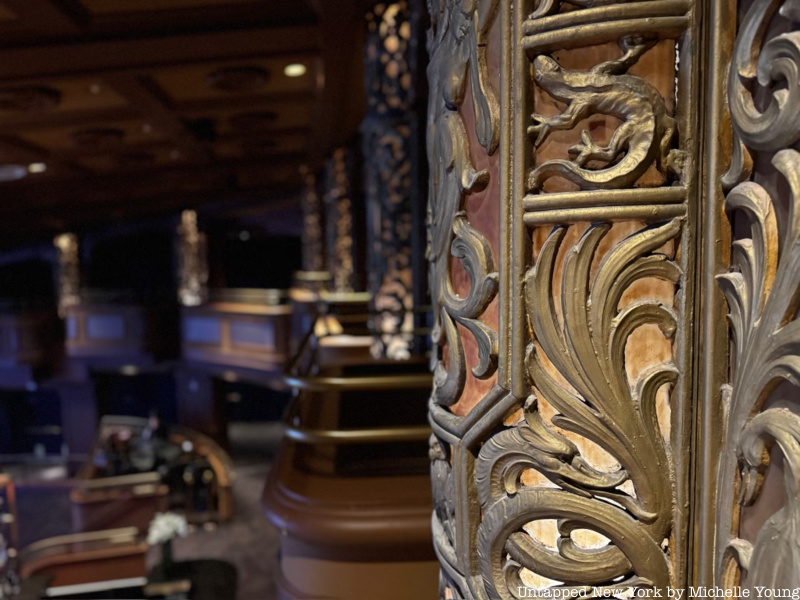
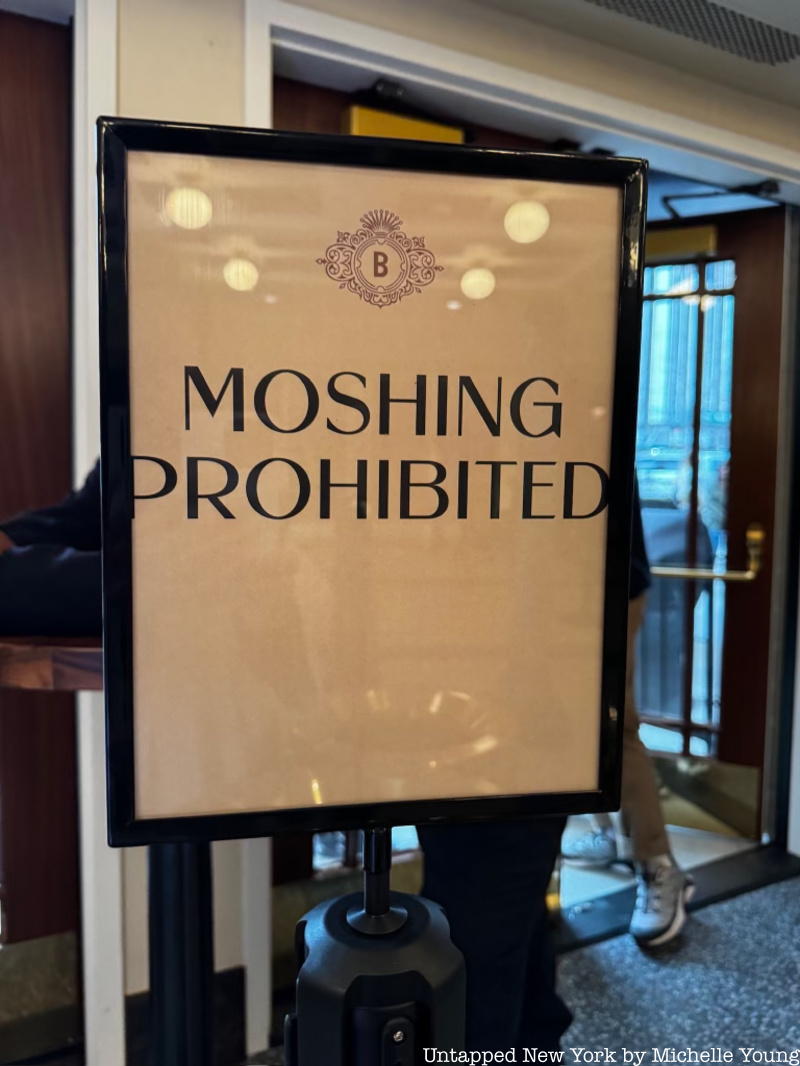
There are a total of seven bars throughout the venue so you can get your drinks fast and get back to the show. Mixologist Sean Kenyon crafted the menu with a focus on local alcohol and beer producers like Fort Hamilton Distillery and Van Brunt Whiskey. You’ll find drinks like the 1928 Blackberry Lemonade, Wildberry Mojito, and spirit-free options.
The original Wurlitzer 4/26 orchestral organ from the theatre, one of only two of its kind in existence, is still intact on site. The auditorium’s blue curtains conceal the organ’s 2,000 pipes while relays and wires snake through the venue under the floor. If needed, the organ can be raised up on an elevator.
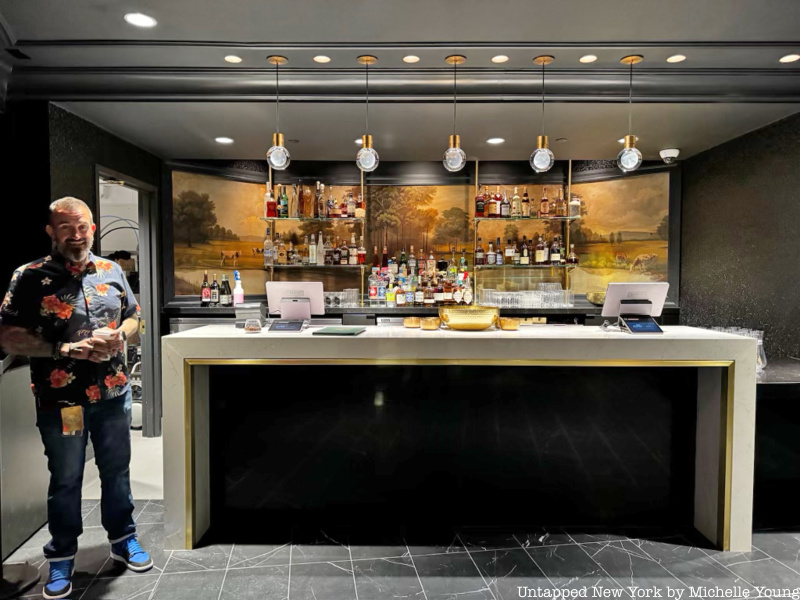
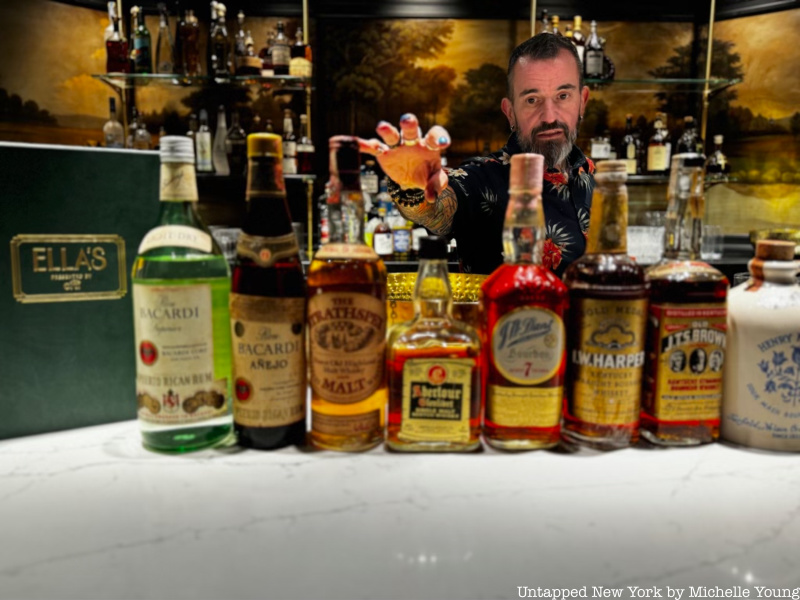
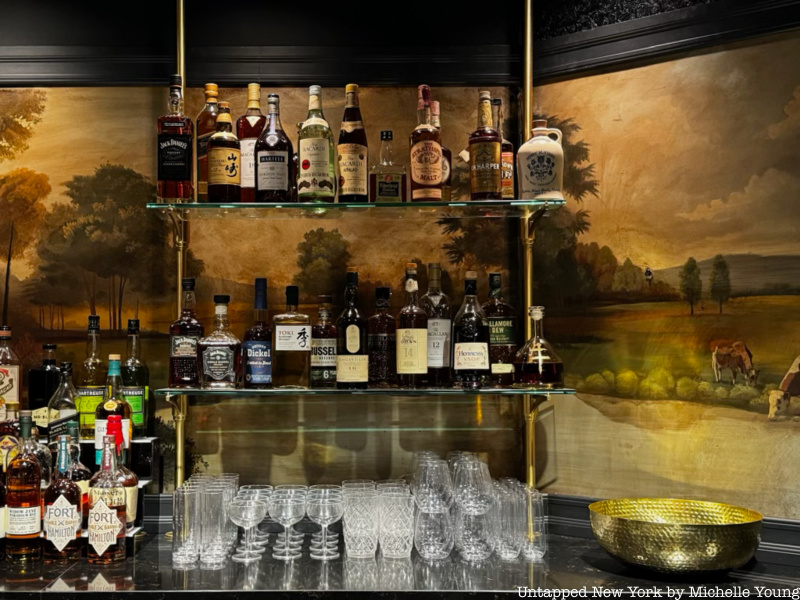
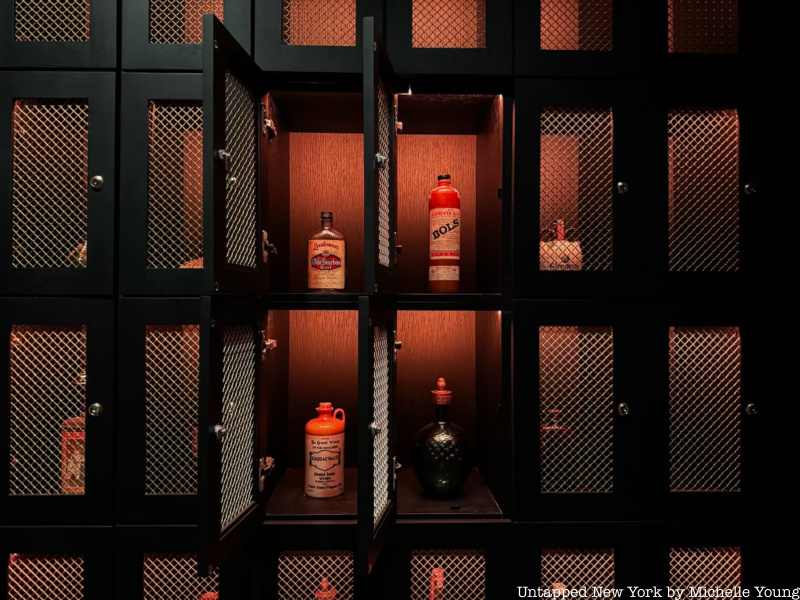
Exclusive member boxes are on the second level where you’ll also find Ella’s VIP lounge. This exclusive space was inspired by Ella Fitzgerald’s 1950s performances at the Brooklyn Paramount Theatre. It’s decked out with golden disco balls, pink palm trees, and framed portraits of legendary artists Duke Ellington, Jerry Lewis, Little Richard, Chevy Checker, and more artists who performed here. Drinks at the bar in this space were inspired by Fitzgerald, jazz, and the time period. Sip on an Ella in Japan, Souvenir Album, and Satin Doll Redux.
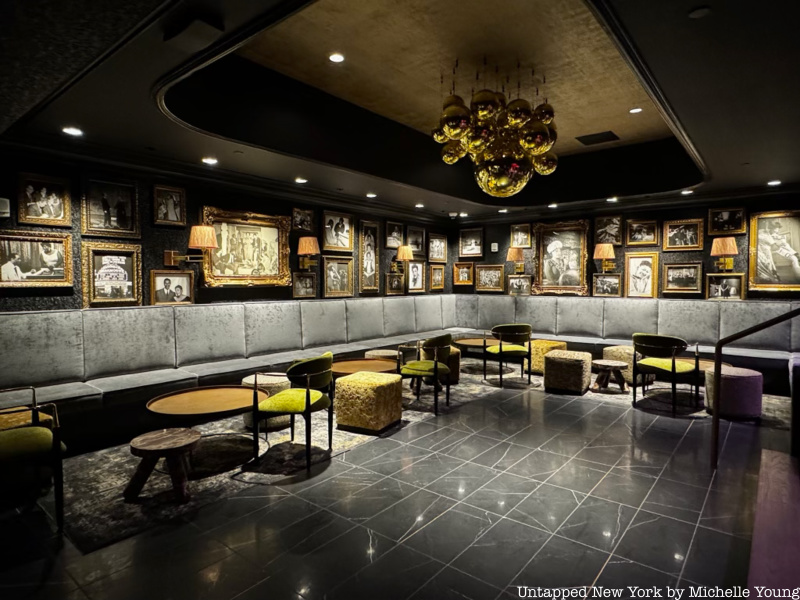
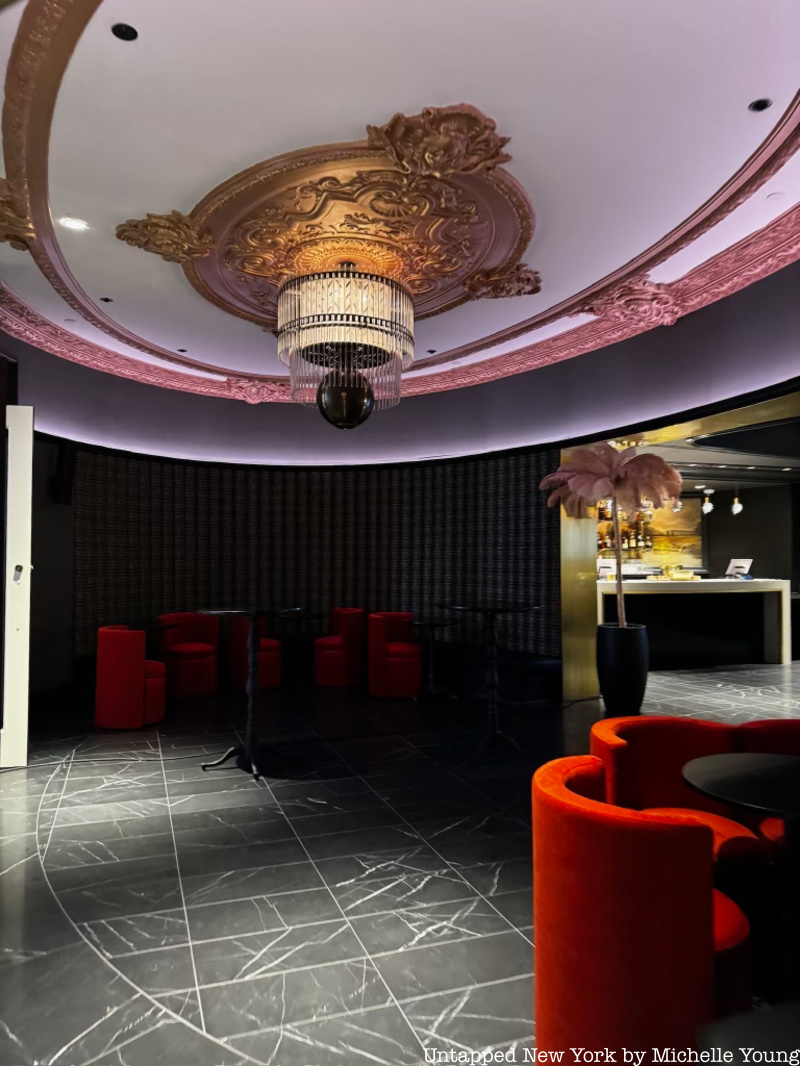
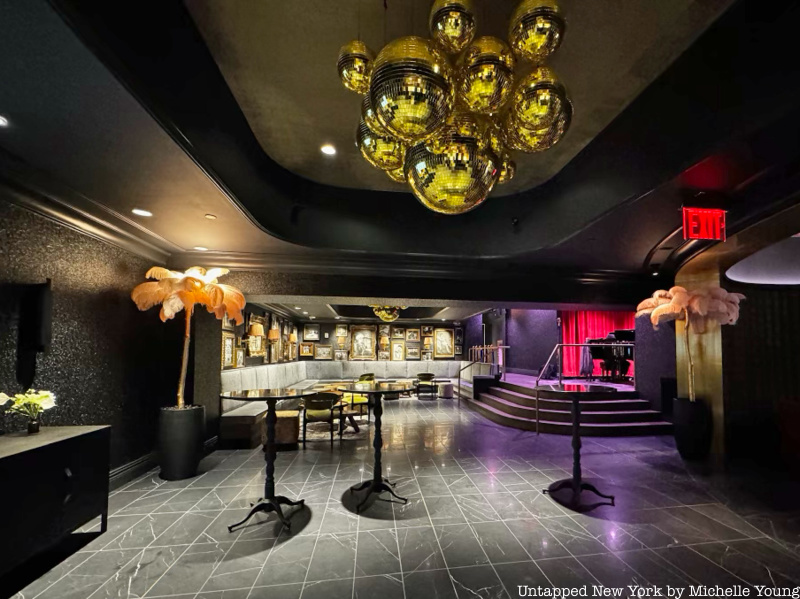
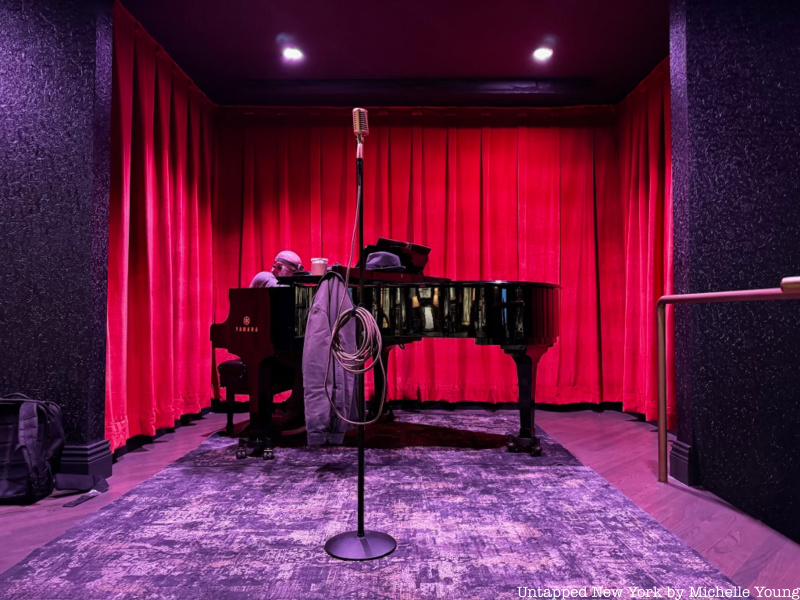
More drinks and original details can be found downstairs at Avena, a late-night bar open until 4 am. Here you’ll find more nods to the theatre’s past, with portraits framed by original gilded archways. Original fixtures on the walls and ceiling light the space. Detailed embellishments like the plasterwork on the ceiling and colorful mosaic tile niches are also original to the building.
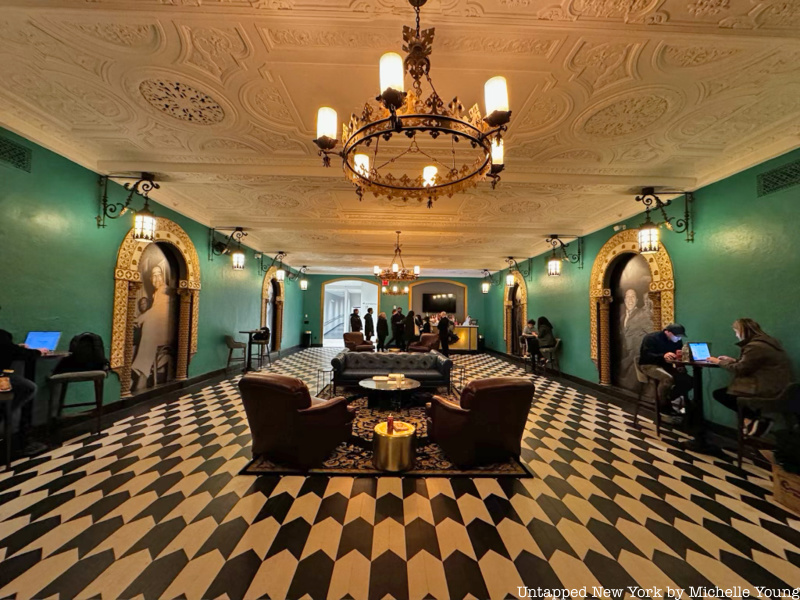
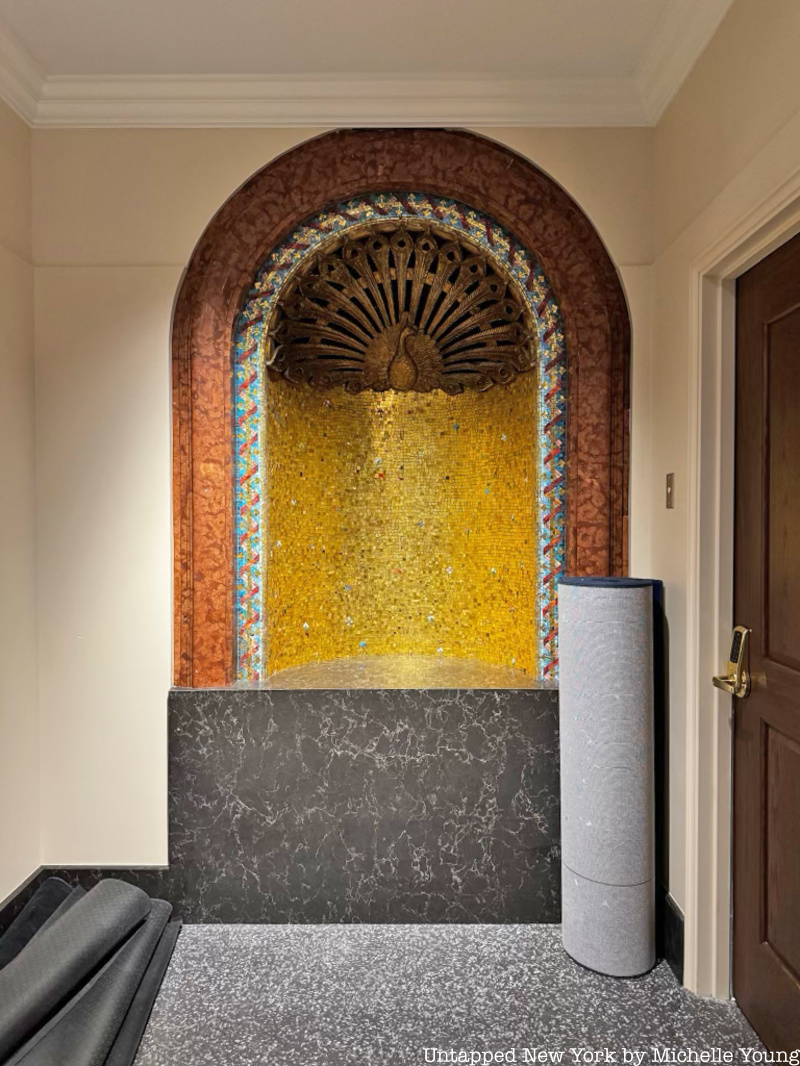
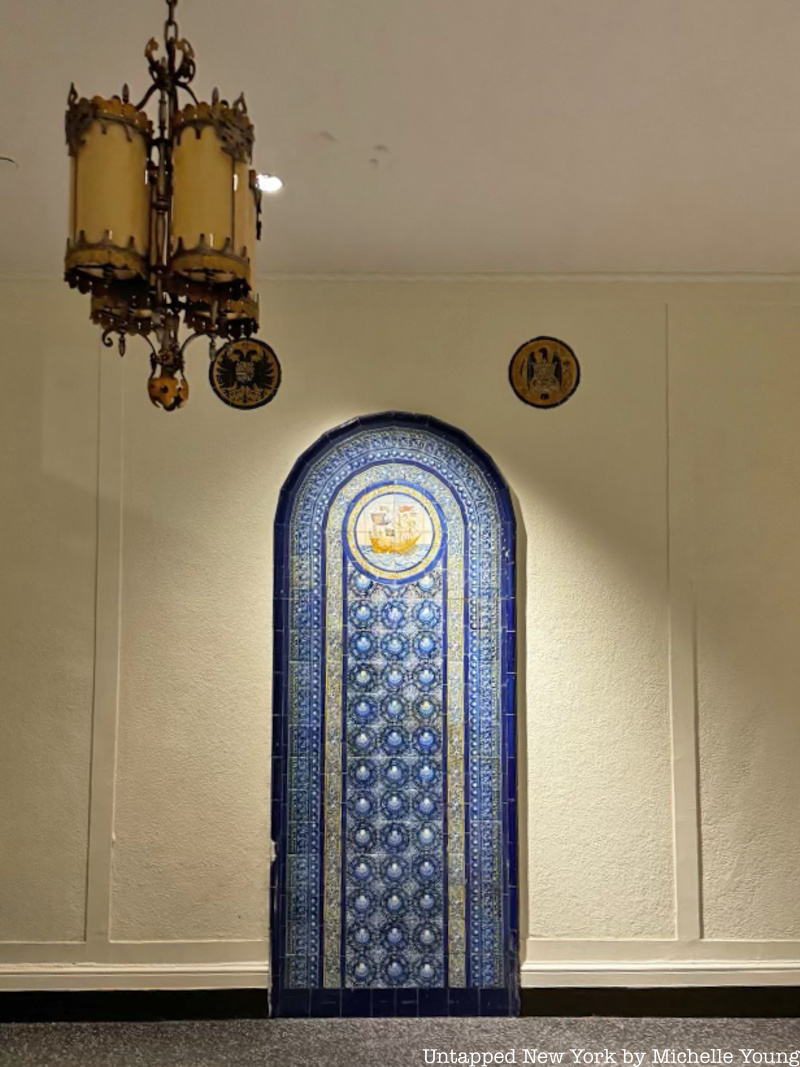
The inaugural line-up at Brooklyn Paramount features a diverse variety of acts from big names like Sean Paul, Norah Jones, Sting, and Liam Gallagher of Oasis, to local talent like Brooklyn-based Diiv and Bronx DJs The Martinez Brothers, as well as events like talks, podcast shows, and music festivals. While there’s bound to be something on the line-up for everyone, the space alone makes the theatre worth a visit.
Next, check out 10 Forgotten Theaters of Brooklyn and Secrets of Downtown Brooklyn
Subscribe to our newsletter